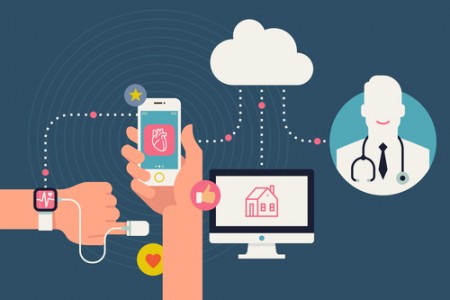December 23, 2015 – Today’s guest blogger, Aaron Rote is Chicago-based. He writes on a wide variety of subjects from entertainment and the outdoors to craft beer culture. An avid runner and hiker, he currently is teaching himself to bike commute through the busy streets of Chicago. Having recently relocated from the Pittsburgh area, he is also torn between his loyalty to the Pirates and his new home team, the Cubs. Check out his blog at www.thelastnewguy.com. In today’s posting Aaron turns to the field of smartphone medical apps and how they are changing both research and treatment of disease. Hope you enjoy his contribution.
———-
The problem has been finding a way to gather information from a diverse group of willing participants. How do medical professionals reach people without disrupting their daily lives? And how do they make people feel invested in research that may never directly affect them?
This year, Apple has provided a most promising solution with its release of ResearchKit, an open source framework for application development in medical research. It allows researchers to create applications for gathering health data on a massive scale. Here are just a few reasons why ResearchKit may be a game changer.
The iPhone Is Good at Data
With every generation, Apple has improved the health-monitoring capabilities of its iPhone products to meet the demands of an increasingly health-conscious consumer base. The iPhone 6’s integrated Health application automatically and accurately tracks distance traveled, steps taken and elevation changes. It also makes it extremely easy for users to record other factors, such as nutrition, sleep habits and reproductive health. And because ResearchKit is open source developers and researchers can build on its foundations to tailor data collected to meet specific needs.
ResearchKit Finds Participants
One of the biggest hurdles with medical data collection is finding participants willing to travel to a hospital or academic institution to take part in a clinical study. Not only does that lead to a smaller pool of data, but also a less diverse one.
It can also create a bigger problem. When individuals know they are involved in a medical study, it often changes their behavior. Researchers can’t count on truly objective answers to medical questions this way. However, ResearchKit removes the face-to-face element from data gathering that often leads to skewed answers. ResearchKit also allows for complete anonymity. Participants share their data, but they also keep their privacy. Best yet, users never have to fill out a single questionnaire.
It Enables Frequent Data Collection
Medical studies have proven to be an effective means for gathering useful data for a select period of time. But what do researchers do if they need a constant flow of data? ResearchKit makes this easy allowing participants to submit data as often as every hour. Doctors know that symptoms can come and go over time, and infrequent data collection can cause simple diagnostic spikes to be over emphasized. But with ResearchKit doctors develop a more complete picture. Using the built-in accelerometer, barometer and gyroscope, an iPhone can collect an accurate stream of data without intruding on the participant’s daily life.
ResearchKit Is Already Working
A team at the NYU Langone Medical Center is already using ResearchKit to develop an app for tracking concussion-related symptoms in athletes. Called the Langone Concussion Tracker, the app conducts a series of tests to check a participants’ memory, balance and vision to gain a long-term picture of how concussion affects motor skills and brain function. The research could completely change the way we diagnose and treat this previously ignored condition that has led to the instituting of concussion protocols in amateur and professional sport.









